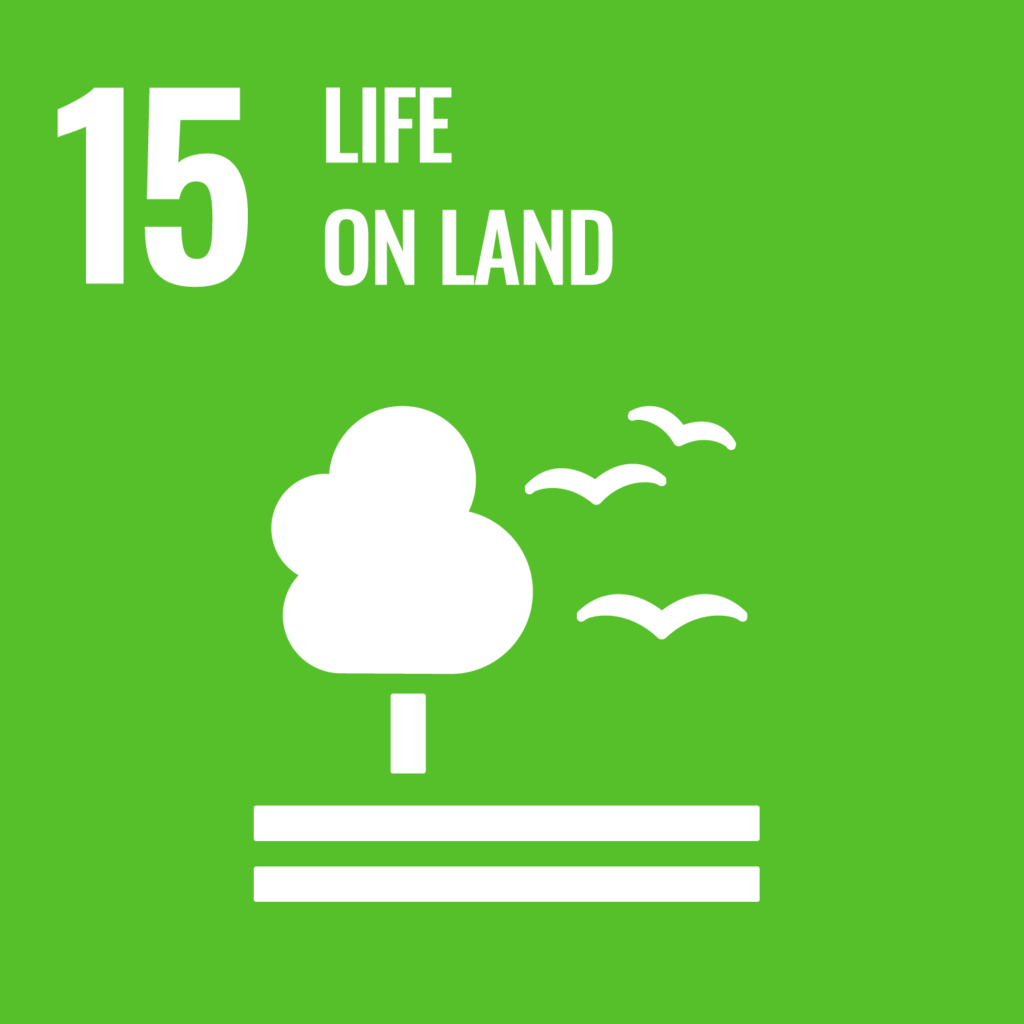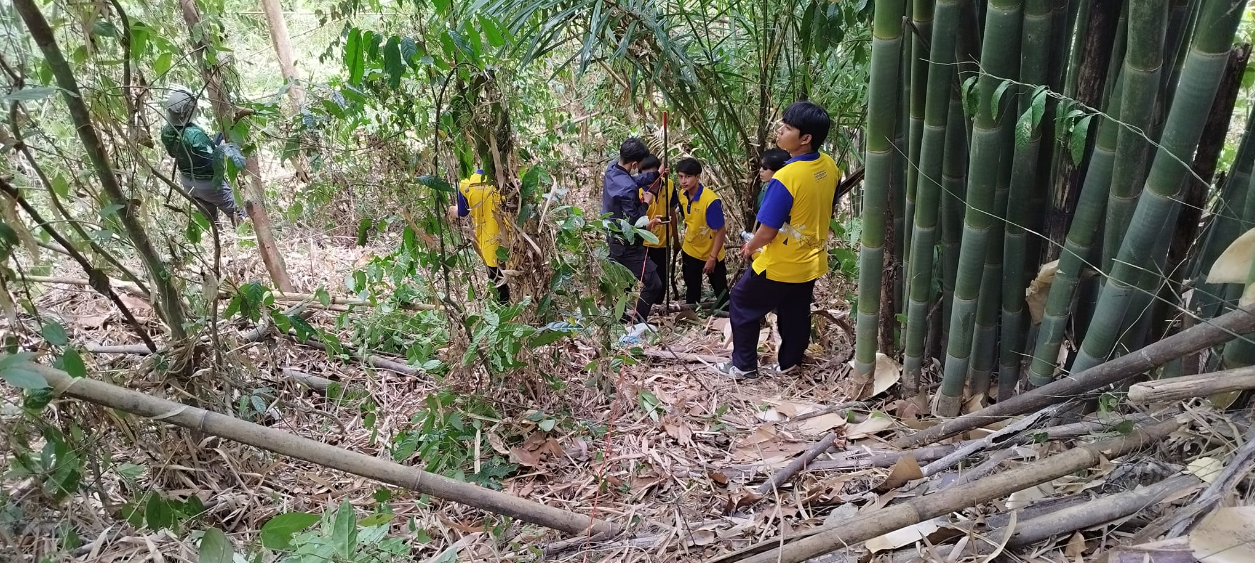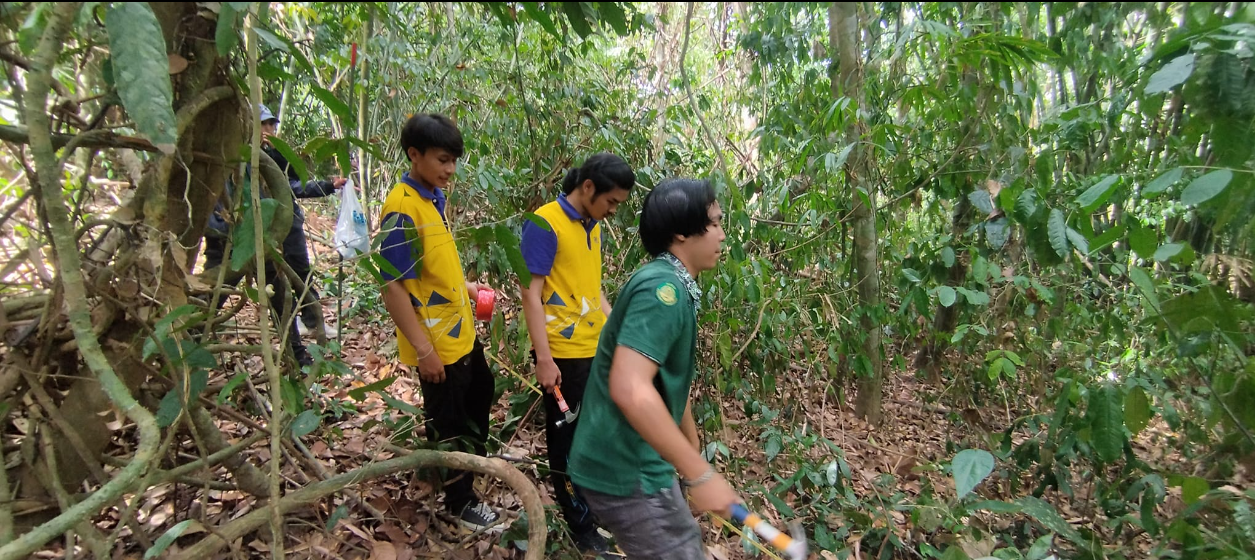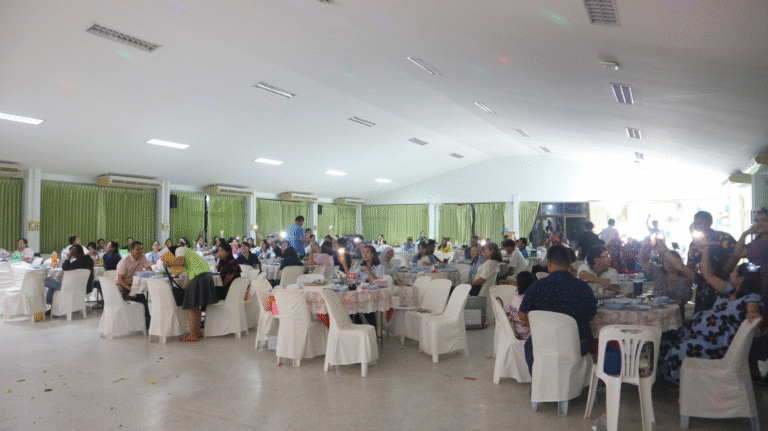Reporters: Asst.Prof.Dr. Prapot Maliwan
Assoc.Prof.Dr. Pornsil Seephueak
Asst.Prof.Dr. Nion Chirapongsathonkul
Asst.Prof.Dr. Worawitoo Meesook
Evidence Date: during 2023 Jan-Dec
Related SDGs:

Related Indicators: 15.3.3
Details: Kiatkajon Chairat and his team, including Piya Pechsong, Puriwat Lertkrai, Sathit Buakhao, Chamlueng Hetthong, and Saranpong Nooyimsai from Rajamangala University of Technology Srivijaya, are working on a project to help communities in Nakhon Si Thammarat understand and calculate carbon credits in their local forests. Supported by the Fundamental Fund 2023, this project teaches community members how to measure the carbon stored in large trees and other forest areas. The researchers are guiding locals on why big trees are important for keeping the air clean by absorbing carbon dioxide. To make this project even more practical, students are helping out by visiting the forest with local people to show them how to calculate carbon storage firsthand. This hands-on learning not only builds skills but also encourages everyone involved to appreciate the natural resources that contribute to a low-carbon society. Throughout the project, the students are also raising awareness about the environmental value of maintaining forest areas in the community.
Once the calculations are done, Kiatkajon and his team plan to introduce a new idea: they want manufacturing companies to financially support the community forest as a way of offsetting their carbon emissions. This means companies that release a lot of carbon dioxide would pay the community for helping absorb that carbon in their forests. The goal is for these payments to help sustain the forest and provide a benefit to local people for their efforts in preserving it. Students in the project work directly with community members to make these concepts understandable, so locals feel empowered to manage the forest sustainably. By the end of the project, the community will have a better idea of how protecting their forest can directly benefit both the environment and their own economy. The project ultimately aims to create a lasting system where the community is rewarded for their role in conserving nature, turning local forests into valuable assets that support both nature and livelihoods.


Related Links: https://riss.rmutsv.ac.th/project/?id=4953



